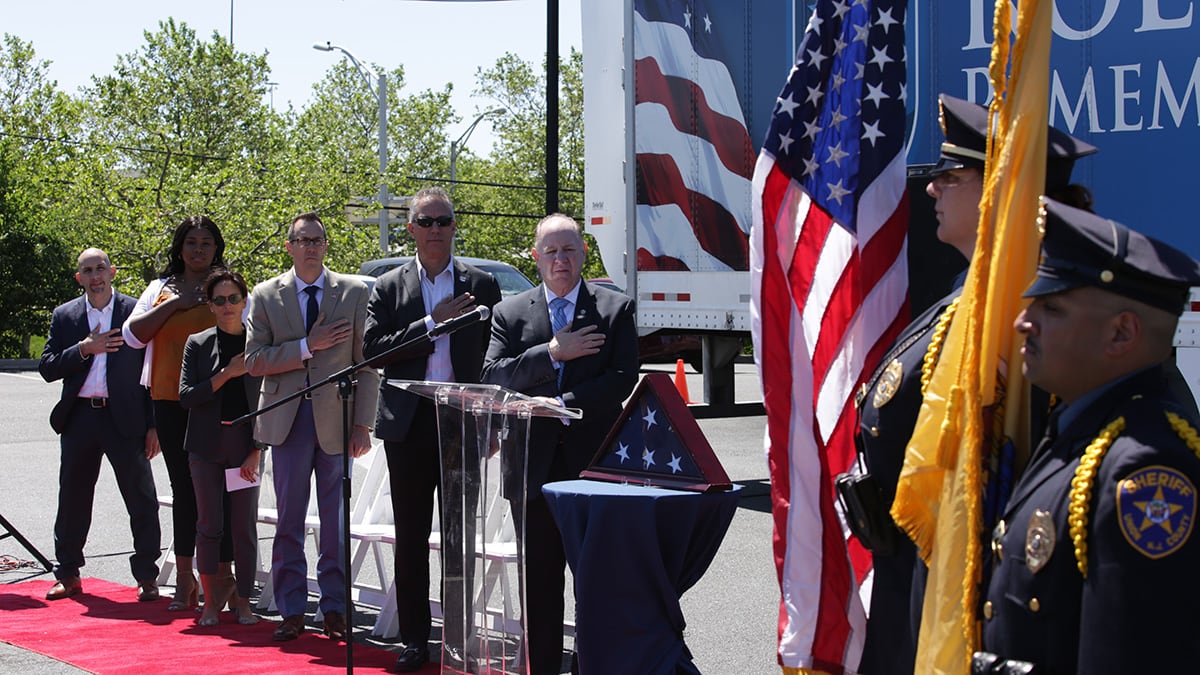David Kim was a year out of West Point when he deployed to Panama in 1989. On the first night of Operation Just Cause, just a few days before Christmas, a member of his battalion was shot and killed.
A few years later he was out of the Army and on his way to Harvard Business School, but that experience would go on to color the rest of his life.
“It obviously hit all of us pretty hard,” Kim told Military Times.
Sgt. William Delaney Gibbs was just 21 years old when he died, and his wife was pregnant with a daughter, due in March of 1990.
“And so that’s what stuck with me,” he said. “I was going to take care of that little girl — and thousands of kids like her.”
Kim stayed in touch with the Gibbs family as he moved on to a career in finance. Ready to fulfill that promise to give back, he laid the groundwork for Children of Fallen Patriots in 2001, just before Sept. 11.
While veterans survivor benefits provide up $26,000 a year in tuition, plus a housing stipend and $1,000 annually for supplies, Children of Fallen Patriots commissioned research that found the available benefits fall short about $25,000 per student.
Accordingly, students whose parents died in combat, in training, because of a service-connected illness or by suicide are eligible for up to $6,250 per academic year in aid through Kim’s organization.
“I did a, you know, classic business school case study to get a sense for if there’s a need for this in the market,” Kim said. “There definitely was, and so we started. And then when the war happened, it just re-emphasized how important this mission is.”
Children of Fallen Patriots brought in more than $11 million in donations in 2021, about $6.5 million of which was paid out to students. Funds are raised through individual donations, corporate partners and events.
RELATED

To date, CFP has given more than $50 million in scholarships to more than 2,200 students, and more than 11,000 have either received grants or educational counseling.
The challenge has been finding people to participate, Kim said, because there’s no central list of Gold Star families to reach out to, and they’re often reluctant to seek out resources.
“And so you kind of have to track them down one by one and really convince them to let you help,” Kim said. “Their initial reaction, inevitably, is, ‘Yeah it’s okay. I got it. I can suck it up. Someone else probably needs the help more than I do.’ And so it’s a real pleasure to be able to help people who come from that mind frame.”
The Army keeps a list that it shares with charities, he said, but CFP also works closely with the VA, through an agreement that the VA will share CFP’s information with Gold Star families who might qualify for a grant.
“Nobody knows exactly how many there are, but we want to be the first to find them all,” he said.
Most of CFP’s grant recipients come from single-parent households earning $50,000 or less annually, he said, while 40% are the first in their family to attend college and 30% are from minority backgrounds.
Another study commissioned by CFP found that for every dollar they’ve invested in students, their lifetime earnings are multiplied 16-fold.
“So, it’s an important cause, but it’s a very impactful and high-return investment people are making,” he said.
One student, Kim recalled, had lost his father in combat just a few years after his mother had died of cancer.
“He was just kind of bootstrapping his way through college, and he was on the verge of not being able to re-enroll because he couldn’t pay his bills when we found him,” Kim said, adding that he went on to join the New York Police Department.
Others have gone on to jobs with CFP’s corporate partners, or in many cases, with CFP itself. Half of the organization’s staff are grant recipients, Kim said, and all of their scholarship administrators are also Gold Star family members.
“And so big part of their job is to do that outreach, and constantly be a friend and a mentor for these families that are going through so much,” he added.
His favorite part about working with Gold Star families, he said, is the inspiration they give him in his own life.
“They’ve had a huge hole torn in their life, but you know, they’re so incredibly resilient,” he said. “They’re going on to do incredible things in college, and in their career fields afterwards. They’re just very, very inspiring people.”
Military Times’ Service Members of the Year
Coast Guardsman of the Year | Watch
Meghann Myers is the Pentagon bureau chief at Military Times. She covers operations, policy, personnel, leadership and other issues affecting service members.





